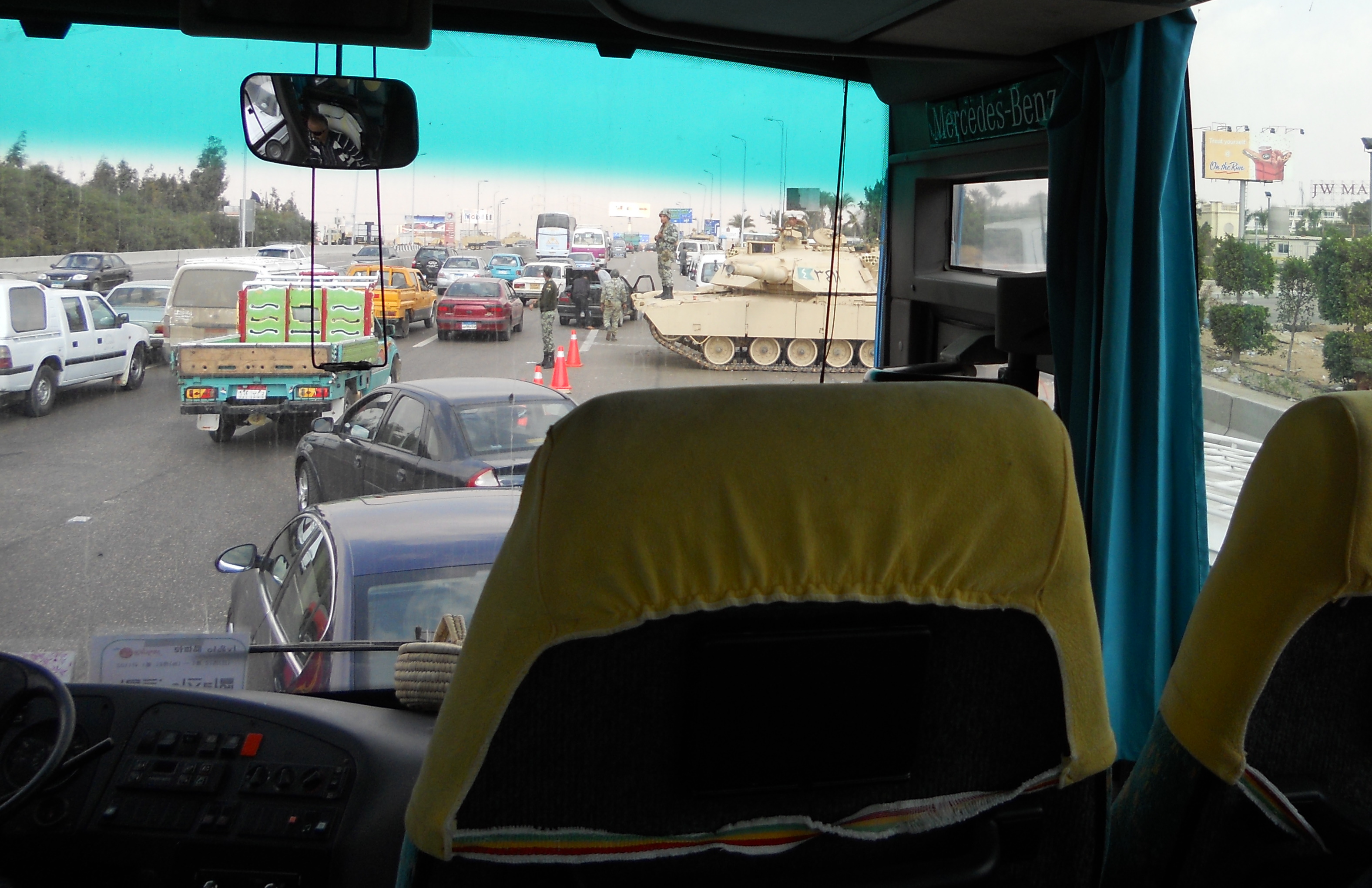Egyptian uprising sends Mason student back to campus

The view during part of the bus trip Mason junior Matt Wilchek took from The American University Cairo to the Cairo airport to catch a U.S. State Department charter flight out of the country. Wilchek was in Egypt on a study abroad program. (Photo courtesy of Matt Wilchek)
Matt Wilchek had only been in the country for four days when the Egyptian people broke into social and political unrest two weeks ago. The Mason junior was scheduled to begin a semester abroad at The American University Cairo, but instead found himself in the midst of an international incident.
“Believe it or not, I thought it would look really good on an application,” Wilchek said of the situation after returning to the United States.
The global affairs major had wanted to stay in Egypt to live in the historic moment. But heeding pressure from his parents, Wilchek eventually took U.S. State Department advice and boarded an evacuation flight out of Egypt.
Now back on Mason’s Fairfax campus, Wilchek said the situation in Egypt was chaotic but also a historic opportunity for someone studying with a focus on the Middle East.
“I thought this is kind of a good opportunity because I could say I was here when all of this was going on,” he said.
On the first day of protests, Wilchek and his roommate traveled to downtown Cairo by cab where they saw hundreds of police in full riot gear blocking streets. Later that day they saw masses of people heading to Cairo’s Tahrir Square where the protests have been centered since the unrest began.
But that was Wilchek’s only direct exposure to the protests.
As the situation intensified Wilchek said he decided to switch dorms. The move took him out of downtown Cairo and to the main American University campus about an hour outside the city.
From that campus, Wilchek and others at the university lost access to internet and phone communication and were also subject to Egyptian government imposed curfews. Rumors of an impending communication blackout had persisted for a few days, so Wilchek said he was able to warn his parents that he might be out of contact for a while.
Because he was on the university campus, Wilchek said the curfew wasn’t as strict as it was in downtown Cairo, so he was able to utilize campus facilities while still observing the government restriction.
Wilchek was able to leave Egypt with assistance from the U.S. State Department on the first day of organized voluntary evacuations. He boarded a shuttle bus from The American University that took him to the Cairo airport. The State Department chartered flights out of Cairo for U.S. citizens and embassy employees to three different safe locations outside of Egypt.
On the trip from the university to the airport, Wilchek said he saw police and tanks in the streets. Closer to the airport terminal, he said more than a thousand people were gathered outside trying to catch flights out of the country.
Wilchek had to wait nine hours in the Cairo airport before his State Department flight to Istanbul, Turkey. He said most people on the flight were tourists or State Department employees. He did not see many fellow students.
In Turkey, Wilchek’s stayed in a hotel overnight and then his parents helped get him a flight to New York City where he then traveled home to Connecticut.
In the meantime, Wilchek’s parents were communicating with Mason so he could join spring semester classes once he returned to the U.S., which he has, and he’s now working to catch up on the work he’s missed during the first two weeks.
“Everyone was more than willing to help me out,” he said of making it back to Mason and settling back into campus life.
